6 Educational Cruises
By Anne Kalosh & Jackie Sheckler Finch
Updated March 2, 2025
Interested in becoming a citizen scientist, documenting climate change or just wanting to delve deeper into the ecology, heritage and culture of the destinations you visit?
Perhaps you’d like to learn more about America's past and visit actual places that you may have read about in school. Or maybe your dream is to visit the Galapagos Islands, to see what inspired Charles Drawn to write On the Origin of Species, the foundation of evolutionary biology.
Whether it’s learning through lectures, presentations or hands-on research, or listening to trained historians and visiting heritage sites, it’s all possible aboard a range of small expedition and river ships.
These trips are for travelers with a purpose who want to learn and perhaps contribute to changing the future in a meaningful way. You’ll come back transformed and inspired, and hopefully, act as an advocate for science, conservation and history.
Here’s a sampler of some wonderful small-ship educational cruises.
Subscribe to our monthly small ship cruise email
Subscribe to QuirkyCruise.com for monthly curated newsletters highlighting our top small cruise ship reviews, round-ups & offers!
Lindblad Expeditions in the Galápagos
Carbon-neutral Lindblad Expeditions, which introduced international adventure expeditions to the Galápagos Islands nearly 60 years ago, has a commitment to conservation there, where it operates four vessels year-round.
In 2025, Lindblad Expeditions is doubling the size of its Galápagos fleet. Joining the 48-passenger National Geographic Islander II and 96-passenger National Geographic Endeavour II are the 48-passenger National Geographic Gemini and the 16-passenger National Geographic Delfina.
The smallest in Lindblad Expeditions’ growing fleet, the luxury catamaran National Georgraphic Delfina is named in honor of the company’s founder Sven-Olof Lindblad’s youngest daughter, Delfina.
RELATED: Anne reports on the new National Geographic Islander II.
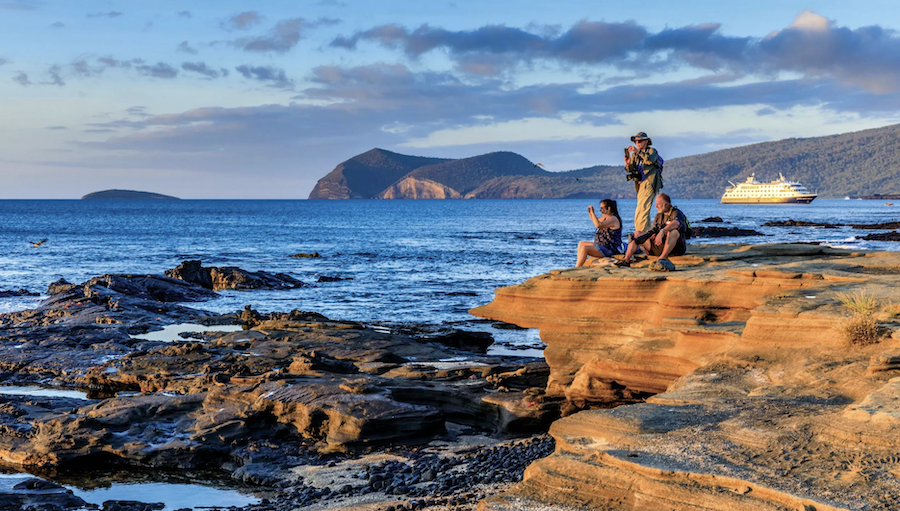
Galápagos vista. * Photo: Ralph Lee Hopkins for Lindblad Expeditions
Studying the Galápagos
Lindblad travelers can study the unique Galápagos habitat accompanied by experts on every cruise to provide an authentic, immersive Galápagos experience informed by the company’s decades-long relationships with local communities and conservation groups.
The ships are equipped with state-of-the art tools for exploration, including Zodiacs, kayaks, stand-up paddleboards and complete snorkeling gear for children and adults.
“By sourcing well-appointed vessels and onboarding the most experienced crew and staff who meet our exacting standards of responsible exploration, we’re able to transport guests from around the world to the iconic archipelago and help them understand the importance of protecting and preserving its wonders and wildlife, as a consequence of their personal experience,” Sven-Olaf Lindblad said in announcing the acquisition of the two ships joining Lindblad Expeditions’ fleet.
Interested in these cruises?
Here's more info on Lindblad's Galápagos cruises.
Aurora Expeditions' New Ship Honors Antarctica Explorer Douglas Mawson
Another carbon neutral travel company, Aurora Expeditions, will launch a new ship in December 2025 honoring famed Antarctica explorer Douglas Mawson. The state-of-the-art Douglas Mawson is the last in a line of purpose-built vessels that have redefined small ship expedition cruising. The 154-passenger ship will debut in East Antarctica; Aurora's first time in Antarctica in 15 years.
In the early 1900s, Douglas Mawson organized the first Austrian-led expedition to Antarctica. Battling brutal conditions, the expedition charted large portions of the East Antarctic coastline and gathered scientific data in areas such as biology, marine science and geology.
An interesting tidbit, the ship that Douglas Mawson and his team used was named Aurora. Decades later, his ship inspired the name for Aurora Expeditions.
Douglas Mawson Will Offer Solo Cabins
The Douglas Mawson joins two other Aurora vessels, the Sylvia Earle and the Greg Mortimer. And for the first time for Aurora Expeditions, the Douglas Mawson will offer solo cabins.
Like its sister ships, Douglas Mawson will feature the Ulstein X-BOW, which is aimed at increasing fuel efficiency and making ocean crossings smoother and faster. The vessel also will have a changing room and mudroom where passengers can get ready to explore off-ship, Zodiac access points and an onboard science center plus a lecture theater.
“Aurora has pioneered expedition travel to the world’s most remote places for more than three decades, and we know that exploration is not just about what you see, but how you see it,” Aurora Expeditions CEO Michael Heath said.
“That is why we are committed to delivering life-changing experiences with the newest, most advanced technology available, and with the most experienced and passionate team in the industry,” he added.
RELATED: Anne reports on Aurora Expeditions going carbon neutral.
Interested in more info about Aurora's offerings?
Here's a link to more details.
Viking's Science Labs & Research Partnerships
Viking, the prolific river cruise operator that branched into ocean voyages, introduced in 2022 two purpose-built 378-passenger expedition ships with a strong science focus. They are Viking Octantis and Viking Polaris, which operate in Antarctica and in the Great Lakes. (While our QuirkyCruise pax max is 300 passengers, we make exceptions once in a while, including with these two ships.)
Each is equipped with a 380-square-foot Science Lab, appointed with wet and dry laboratory facilities to support a broad range of research. The labs were developed in consultation with University of Cambridge scientists.
RELATED: Peter Knego reviews his expedition on Viking Polaris.
RELATED: Anne reports on Viking's flurry of new builds.
Expedition Central on Deck 2 is a fascinating spot to look through microscopes to see microorganisms. Passengers also can stop by during open hours to ask the Expedition Team about wildlife, geology, biology and other expedition questions.
The spectacular Aula is a state-of-the-art panoramic auditorium inspired by the University of Oslo’s grand ceremonial hall. With its 270-degree views and huge retractable 4K laser-projected screen, the Aula is the main gathering place for daily briefings, lectures, documentary screenings and musical performances.
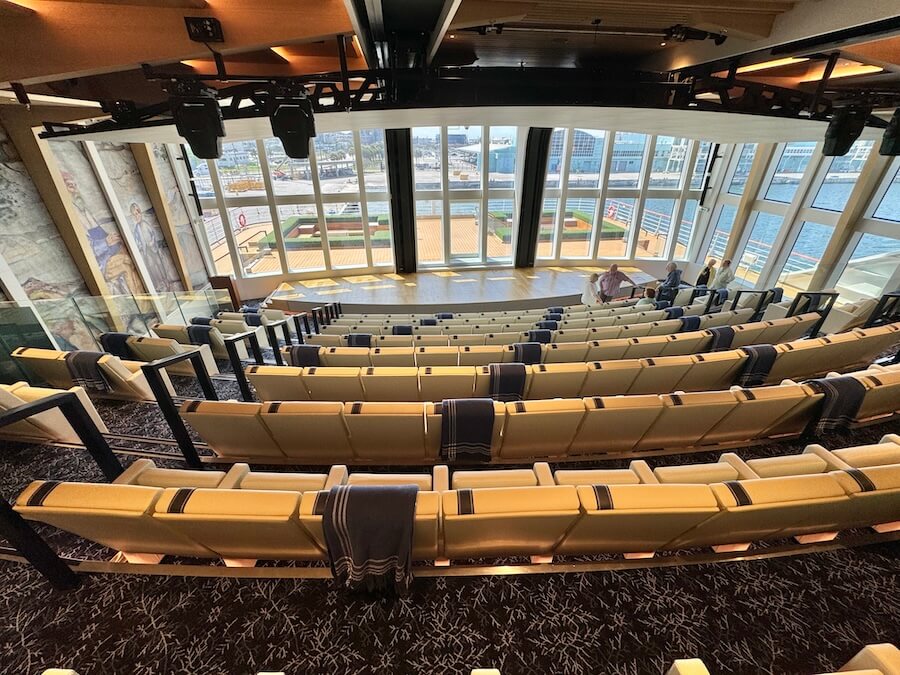
The Aula is a double deck theater with walls of glass on either side where enrichment lectures are held, along with the occasional guest artist performances. * Photo: Peter Knego
Yellow Submarines
A few decks down in the Hangar, two yellow six-passenger submarines are ready for passenger expeditions. On Viking Polaris, the subs are named George and Ringo. On Viking Octantis, the subs are named Paul and John. Now, where have we heard those four musical names regarding a yellow submarine?
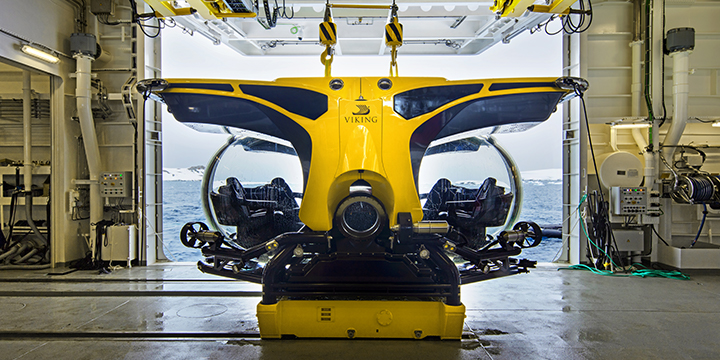
Viking Octantis's two submarines in its Hangar. * Photo: Viking Cruises
Two military-grade Special Operation Boats (SOBs) also wait in the Hangar for excursions and exploration.
An onboard science lab provides a wide range of research activities for passengers. Each lovely stateroom has two pairs of powerful Meopta Optika MeoPro 8×42 binoculars and a large drying closet to air out wet expedition gear.
Viking Chair of Polar Marine Geoscience
Viking also partnered with the University of Cambridge to establish a new professorship aimed at advancing research in polar environmental science. The Viking Polar Marine Geoscience Fund endowed the university’s Scott Polar Research Institute with its first fully funded professorship — the Viking Chair of Polar Marine Geoscience.
This new post will enhance the institute’s scientific leadership and enable new lines of research into the behavior of polar environments, including polar ice sheets, sea ice and ocean circulation.
The research fund builds on Viking’s existing partnership with Cambridge University’s Scott Polar Research Institute, which played a significant role in developing the scientific enrichment program for the company’s expedition vessels.
Scientists from the Scott Polar Research Institute and other renowned academic institutions are undertaking fieldwork onboard. They’re part of each ship’s 36-person expedition team, a diverse group of experts that lead excursions and give lectures on each sailing.
Fieldwork Onboard Ships
Scientists from the Scott Polar Research Institute and other renowned academic institutions are undertaking fieldwork onboard. They’re part of each ship’s 36-person expedition team, a diverse group of experts that lead excursions and give lectures on each sailing.
The results have been astounding. In 2023, Viking published its first scientific paper in Polar Research, the scientific journal of the Norwegian Polar Institute, following expedition team’s encounters with rare giant phantom jellyfish in Antarctica.
In 2024, the Viking expedition team supported the discovery of a new colony of chinstrap penguins not previously known to science on Diaz Rock, near Astrolabe Island, in Antarctica.
“Every Voyage Should Provide Opportunities for Scientific Discovery”
“Our intention in creating ‘the thinking person’s expedition’ is that every voyage should provide opportunities for scientific discovery, for our guests and for our partners,” said Viking Chairman Torstein Hagen, who was educated as a physicist.
He adds, “We are proud that our expedition vessels can also be utilized as ships of opportunity for important research that might not be possible otherwise.”
Further Scientific Partners
Viking’s other scientific partners include the Cornell Lab of Ornithology; the National Oceanic and Atmospheric Administration Great Lakes Environmental Research Laboratory; the Norwegian Institute of Water Research, NIVA; Oceanites; and the IUCN Species Survival Commission Species Monitoring Specialist Group.
For additional details about Viking, go here.
Two Victory Cruise Lines Ships to Cruise Again
Well-known cruise figure John Waggoner has created a victory for cruisers who want to visit the Great Lakes, St. Lawrence Seaway and Canadian Maritimes by relaunching two popular cruise ships in 2025, for recently resurrected company, Victory Cruise Lines.
Waggoner bought the two vessels at an auction in May 2024 after the bankruptcy of American Queen Voyages. The 190-passenger Victory I will be rechristened in Toronto on April 27, 2025. Sister ship, 190-passenger Victory II will be rechristened in Chicago on May 12, 2025.
Waggoner already knows the two vessels quite well. He ran American Queen Voyages when the company originally bought the ships in 2018. Waggoner founded American Queen Voyages, but sold the company before it went bankrupt.
“Our cruise experience will offer many special touches, including being the only cruise line to dock at Chicago’s Navy Pier, and most of all, our ships will be a home away from home exploring all five Great Lakes,” Waggoner said.
The five Great Lakes are Superior, Michigan, Huron, Erie and Ontario.
Both Victory ships were originally purpose-built to fit in the locks of the Great Lakes and St. Lawrence Seaway, which are narrower than some other docks around the world. The ships’ small size permits them to navigate small harbors and call at downtown marinas in the region that cannot accommodate larger ships.
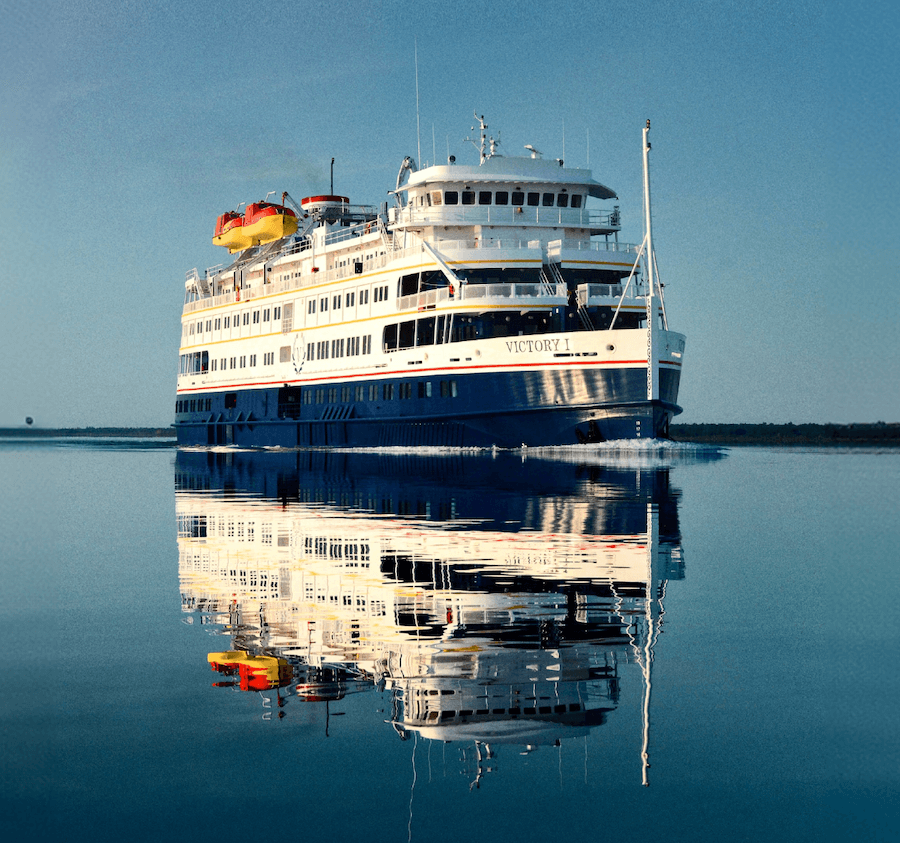
The 190-pax Victory I. * Photo: Victory Cruise Lines
Learn Fascinating History from Shipboard LakeLorians
Through a partnership with the National Museum of the Great Lakes in Toledo, Ohio, the ships will feature museum-trained LakeLorians who will guide Victory guests through the history, science and significance of the Great Lakes.
The LakeLorians will lead discussions, give presentations and host one-on-one sessions on Victory I and Victory II. The LakeLorians will help passengers gain insight into each port visited and experience the region’s distinctive past through engaging discussions.
Every Cruise Includes Visit to National Museum of the Great Lakes
Every sailing also will feature an excursion to the National Museum of the Great Lakes where passengers can enjoy behind-the-scenes access to Great Lakes experiences, content and artifacts.
Ports visited include Chicago, Escanaba, Mackinac Island, Sault Ste. Marie, Detroit, Cleveland, Niagara Falls and Toronto. The ships also will serve regionally influenced cuisine to enhance the travel experience.
“Our guests seek more than just a visit to ports,” Waggoner said. “They crave an in-depth understanding of the Great Lakes. Working with the National Museum of the Great Lakes adds depth to the guest experience and allows us to celebrate this extraordinary region.”
Interested in more info about Victory Cruise Lines?
Here's a link to more details.
Swan Hellenic Expands Cruising4Oceans Initiative
As longtime believers that exploration and discovery go hand in hand with protecting the world’s most precious environments, Swan Hellenic is expanding its groundbreaking Cruising4Oceans initiative that was launched in 2024.
The expedition cruise line now offers two cruise ships for citizens interested in science. Launched in 2022, the 152-passenger SH Vega was named after the first ship to cross the Arctic Northeast Passage. Launched in 2023, the 192-passenger SH Diana was named after the ancient Roman goddess of light, the moon, hunting and the wilderness.
In December 2024, Swan Hellenic became the first shipping company to contribute real-time oceanographic data to the European Marine Observation and Data Network, the European Commission’s leading source for marine environment and human activity data.
That initiative builds on Swan Hellenic’s partnership with the European Union’s Mission Restoring our Ocean and Waters, which the company joined as the first shipping company signatory in 2023. The SH Vega and SH Diana have been collecting valuable data since August 2024, beginning in the Arctic around Svalbard.
From water temperature and salinity to ocean currents and conductivity, the Swan Hellenic data is helping scientists and meteorologists improve ocean health forecasting and refine climate models.
RELATED: John Roberts reviews his Swan Hellenic Arctic cruise.
2025: A Year of New Discoveries
Calling 2025 “A Year of New Discoveries,” Swan Hellenic says it will take Citizen Science to the next level with two exciting advancements:
Tracking Climate-Driven Biodiversity Shifts – Swan Hellenic passengers will capture geo-referenced images of marine flora and fauna, contributing to a global database monitoring the effects of climate change on species distribution.
Environmental DNA Research – Swan Hellenic guests will explore new ways to collect and analyze genetic material left behind by marine organisms, helping scientists detect species presence, assess biodiversity and predict migration patterns caused by climate change.
Antarctic Seabird Surveys
Swan Hellenic also has partnered with Stone Brook University and the eBird Antarctic Site Inventory Initiative to monitor seabirds in the Atlantic Ocean. Passengers on Swan Hellenic voyages that pass through the Antarctic Ocean help to contribute to these important surveys.
With support from an experienced ornithologist and staff member, passengers learn how to complete the survey, which is conducted once per sea day in randomly selected 15- to 60-minute sessions. The surveys are then emailed to Stony Brook University in Stony Brook, New York, to record seabird distribution and habitat usage.
SH Diana
As Swan Hellenic’s newest ship, SH Diana was purpose-built for polar cruising and is well equipped to make passengers comfortable while helping in scientific research. Her ice-resistant PC6 hull makes the vessel ideal for Antarctic cruising.
The ship has numerous places for wildlife viewing. Deck 7 fore is home to the large Observation Lounge where daily briefings and lectures are held. Deck 3 offers Base Camp, the hub for shipboard operations. Special insulated boots are provided for us and passengers get a comfy Swan Hellenic branded parka to keep.
All staterooms face the water to boast ocean views and most have furnished balconies. An unusual artificial crackling fireplace provides a cozy spot in staterooms. Even the sauna and steam room have wonderful ocean views. An exterior door opens out into a large outdoor hot tub for scenic views. Large picture windows around the ship afford panoramic vistas at every turn.
After all, scientific exploration and fascinating history don’t have to be unpleasant or uncomfortable. The SH Diana proves that curious minds can help scientific endeavors while enjoying a sleek and modern ship.
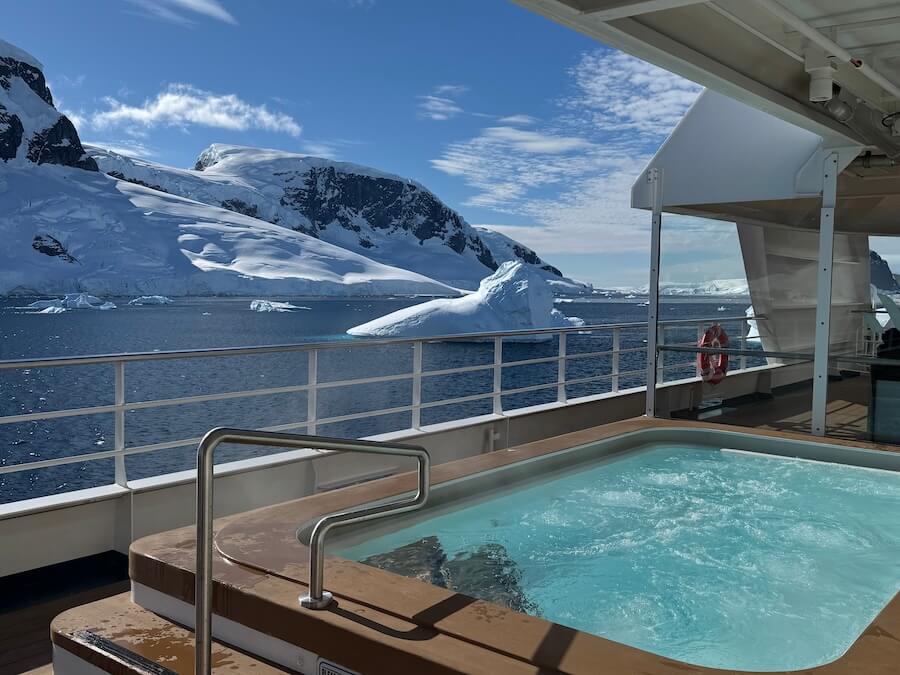
Sh Diana's hot tub with an amazing view. * Photo: Robin McKelvie
Interested in more info about Swan Hellenic?
Here's a link to more details.
Cruise America’s First Highway on American Cruise Line’s Historic Mississippi River Cruise
Journey round trip from New Orleans on a seven-night cruise on the mighty Mississippi River aboard one of American Cruise Lines’ 180-passenger riverboats. Choose American Serenade, American Symphony, American Melody or American Heritage.
Long before interstates crisscrossed America or railroads clickety clacked through the heartland, the Mississippi River was the nation’s first highway.
More than just a river, the Mississippi was an important artery that encouraged exploration, commerce and progress. The 2,300-mile river was the lifeblood of America’s westward expansion.
Beloved author Mark Twain once wrote that “The Mississippi is well worth reading about. It is not a commonplace river, but on the contrary, is in all ways remarkable.”

The 150-passenger American Heritage. * Photo: Jackie Sheckler Finch
RELATED: Jackie Sheckler Finch reviews her American Heritage cruise.
RELATED: John & Sandra Nowlan share their review of the American Melody on the Lower Mississippi.
Cruise Roundtrip from New Orleans
Fittingly, this historic river journey begins and ends in New Orleans at the mouth of the Mississippi. In the early 1800s, New Orleans was one of the busiest ports in the world.
In the old days, America’s music traveled up and down the Mississippi on riverboats.
Passengers today can enjoy that music as resident musicians along with talented performers brought onboard ships at port stops, share the Delta blues, New Orleans jazz, Memphis rock ‘n’ roll and much more.
Guest speakers discuss fascinating local history and share what passengers can see and do in each captivating port city. Cruise stops include Oak Alley, Houmas House, Baton Rouge and St. Francisville in Louisiana, plus Natchez and Vicksburg in Mississippi.
Walking in the Footsteps of America’s History
At Louisiana’s Oak Alley, stroll a striking avenue of centuries-old oak trees leading to a majestic historical home. Hear tour guides discuss the living museum of the area’s rich historical and agricultural heritage.
The same port stop celebrates Houmas House, known as “The Sugar Palace” for its opulence spawned by the sugar cane economy in the 19th century. Restored to the antebellum era, Houmas House welcomes visitors to step into 16 rooms filled with rare period antiques and Louisiana artwork as a tour guide describes the treasures.
Named for an ancient landmark, Baton Rouge’s French title from 1699 translates to “red stick.” A narrator can explain why the site got that name. As the capital of Louisiana, the city brims with stories of notable figures who have left their marks here, especially Governor and Senator Huey P. Long.

Houmas House and Gardens in Vacherie. * Photo: Jackie Sheckler Finch
Names from History Books Brought to Life
Nicknamed “The Kingfish,” Long was assassinated 90 years ago on Sept. 10, 1935. He was 42 years old. Look for Long’s tomb on the front lawn of the Louisiana Statehouse. His tomb-topping statue is one of the largest in America of a politician.
In Natchez, the octagonal Longwood mansion epitomizes the rise and fall of the South. As the Civil War began, workmen stopped construction and the home was never completed. The family lived in the finished lower level. Walk through the floors that were left unfinished to this day.
Meanwhile, Vicksburg played a pivotal role in the Civil War emphasized by President Abraham Lincoln’s declaration that “Vicksburg in the key. The war can never be brought to a close until that key is in our pocket.”
Riding through Vicksburg National Military Park with several stops at key monuments, an historian details the military strategies and human stories that shaped this critical battle.
Brochures and historical pamphlets are available at many stops on the Historic Mississippi River Cruise. But nothing brings history home quite like seeing important sites in person and hearing from experts who offer behind-the-scenes looks at what made the United States of America.
Interested in learning more details about American Cruise Lines?
Hope you Enjoyed this Sampling of Educational Cruises!
If you'd like help booking any of these cruises, we can connect you with your favorite travel advisor Kevin, who can also assist with any pre- or post-cruise hotels and touring you may desire. We are very selective in who we recommend to our readers and Kevin passes muster with flying colors.
Let us know if you'd like to be connected to Kevin, by emailing [email protected].
![]()
Don’t miss a post about small-ship cruising, subscribe to QuirkyCruise.com for monthly updates & special offers!
© This article is protected by copyright, no part may be reproduced by any process without written permission from the author. All Rights Reserved. QuirkyCruise.com.

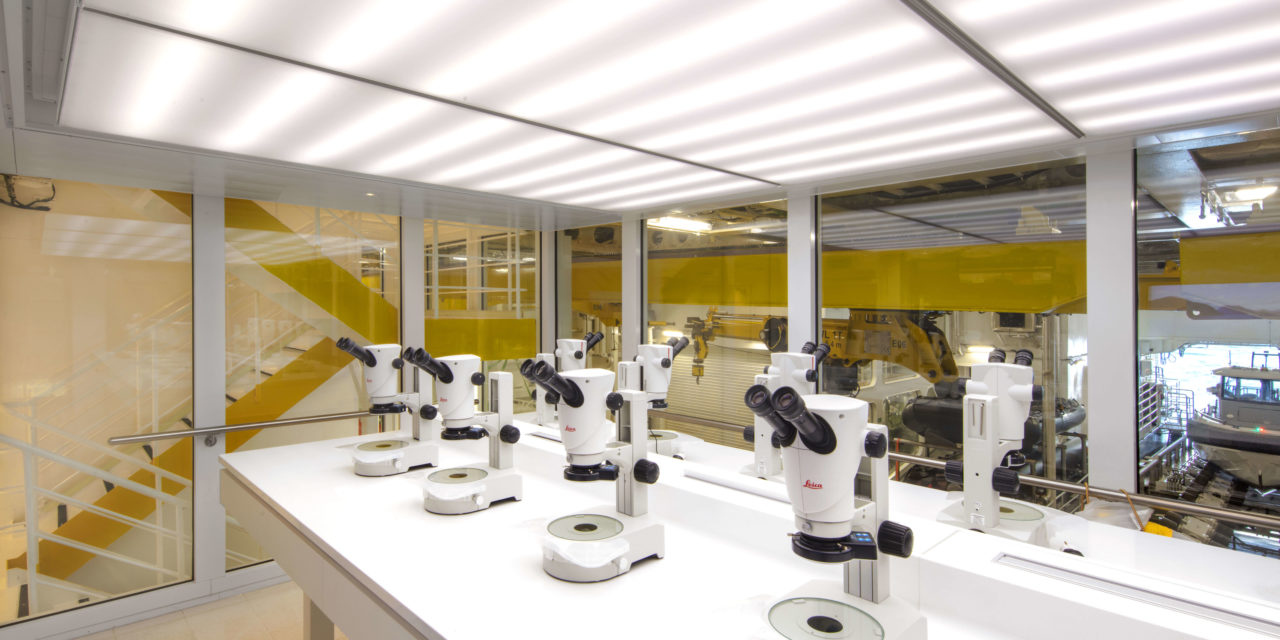
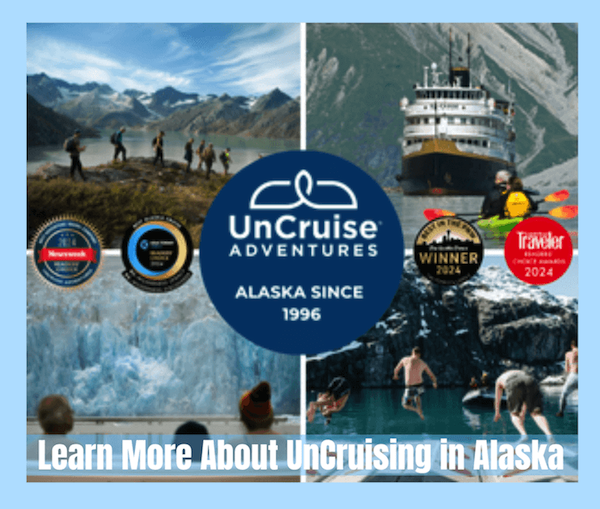

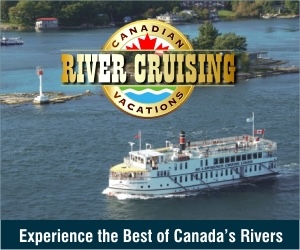
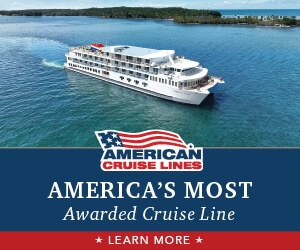
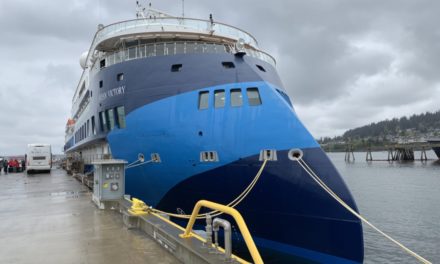

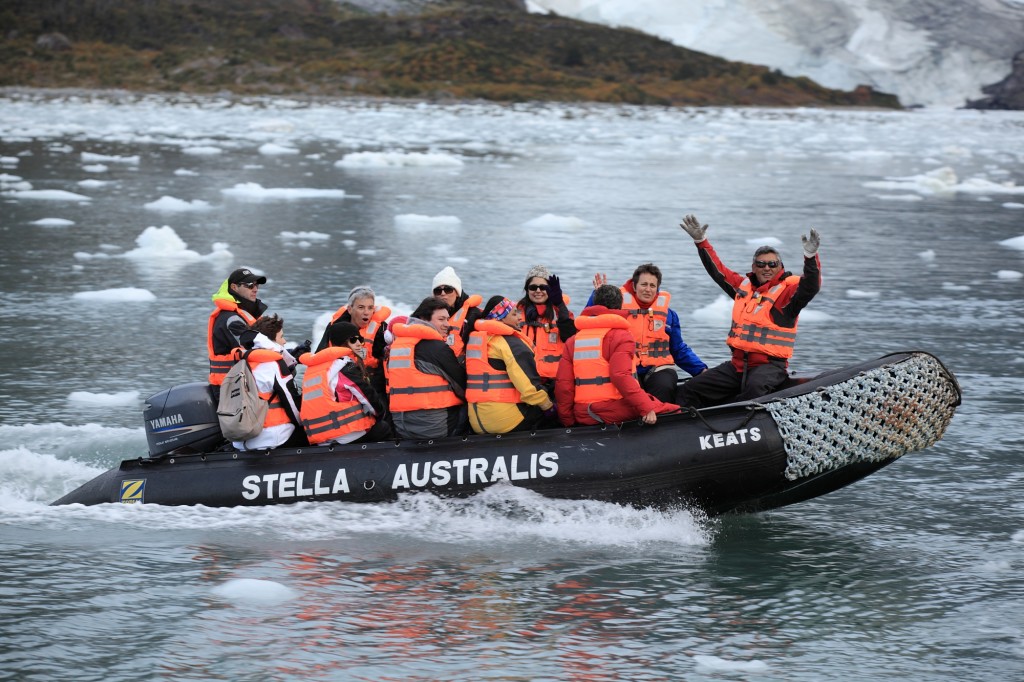
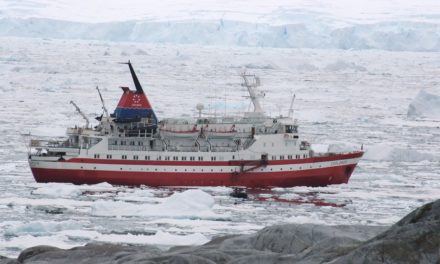
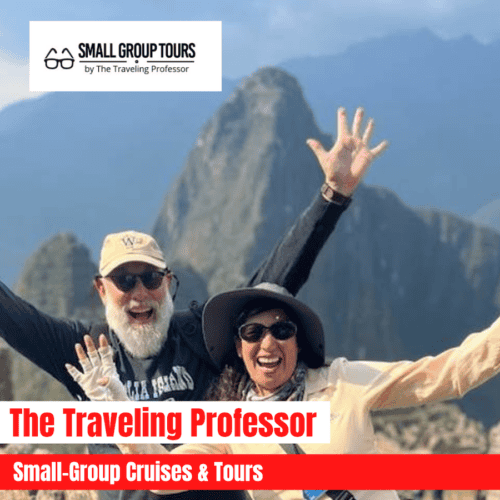
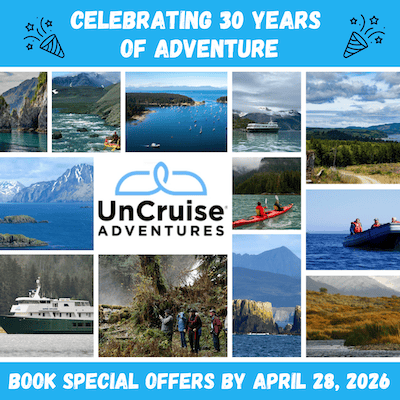

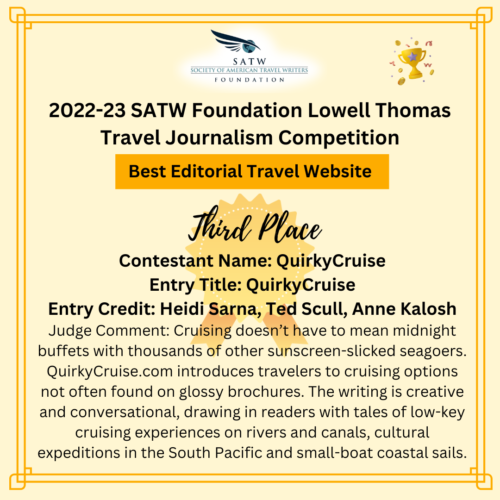


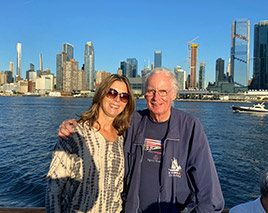 HEIDI SARNA
HEIDI SARNA
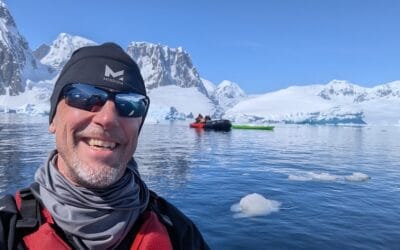

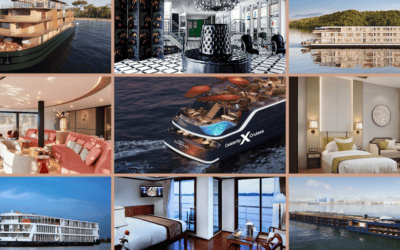
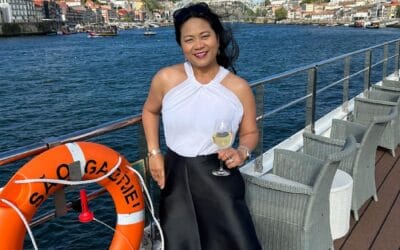
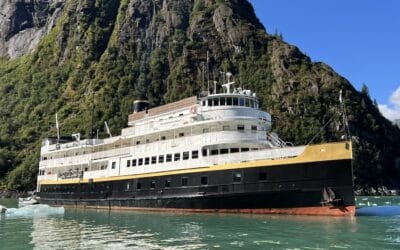
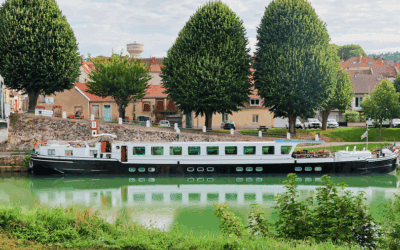
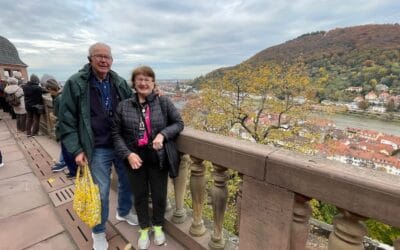
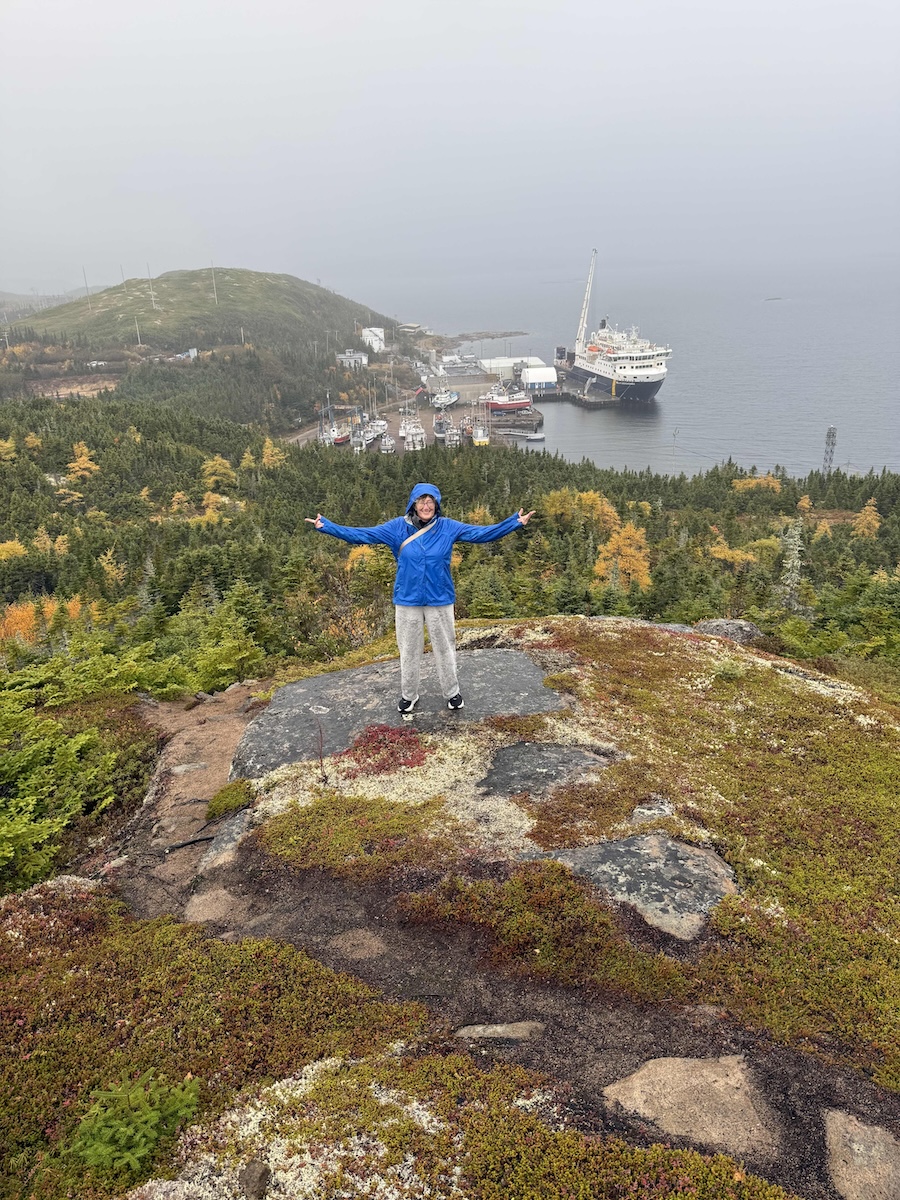
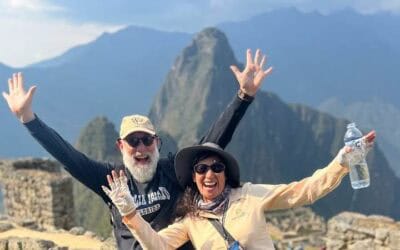
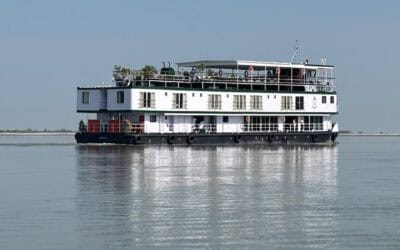
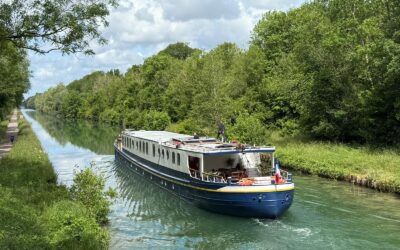

Dear Quirkycruise,
I am a retired Senior Lecturer in Biology.
I have two PhD’s and my specialties are Honey Bees and Medical Imaging. I was wondering if there was an opportunity for me to become a Guest Lecturer for one of your cruises.
My website: “radioentomology.com” will provide some background information on the sort of lectures I could present for your passengers.
Best wishes,
Mark.
Thanks for your note Mark! You should definitely try to reach out to the cruise lines mentioned in this story, they may be looking for new lecturers. Kind regards, QC